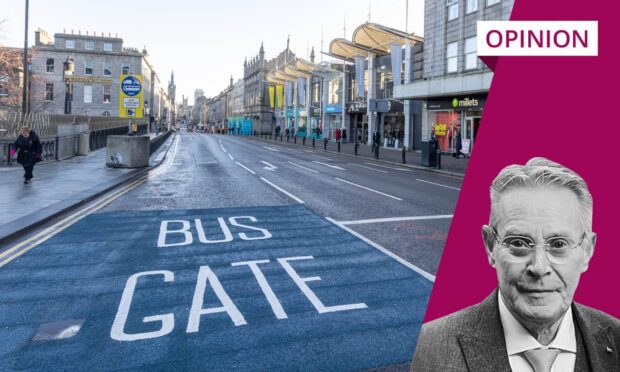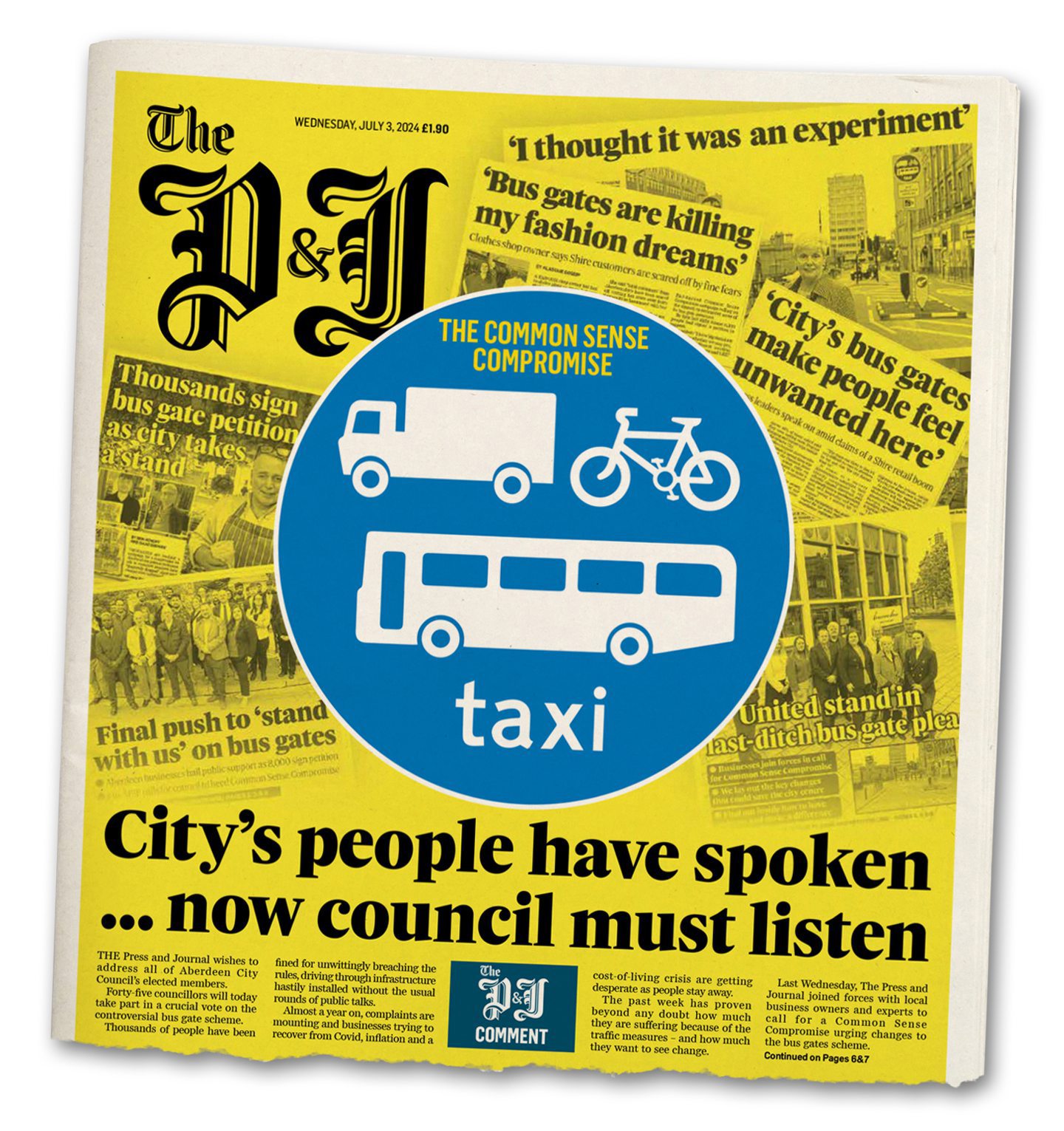I read the other day about a pamphlet called Common Sense, which had a major influence in bringing about the American Revolution.
It captured the public mood during a period of great unrest, crystallising the very essence of the argument and creating a sensible way forward, which people of all persuasions could rally around.
On a more modest level, The Press and Journal has done an exemplary job of showcasing the Common Sense Compromise, to offer an alternative solution to Aberdeen’s bus-gate fiasco, coordinating and harnessing deep concerns about the bus gates under one umbrella.
This was triggered after the controversial traffic scheme was rolled out under obscure regulations which by-passed the normal democratic process and choked off city centre trade. It created a widespread perception that the city was closed for business; as always, when those in power ignore warning signs and fail to act decisively, perception quickly becomes reality.
City council leaders cocked a deaf ear to the campaign a few days ago at an emergency meeting, and decided to continue along their ill-judged path, it would seem – despite creating a misleading impression that they were prepared to take the protest seriously and listen to sensible compromises suggested by The P&J and business leaders.
A feasibility study into possible changes to the gates layout at some vague future point was the only olive branch on offer at the meeting, despite an 11,000-name petition backing the Common Sense Compromise.
There was a pledge of sorts about this being done “as soon as possible” – which, in local government terms, sounds like a kiss of death; about as binding as old sticky tape around broken spectacles. Hoping it will all go away and the row might blow over, in other words.
As political wizard Machiavelli wrote, “wise men act at once, the foolish finally do it.”

It was pretty much a kick in the teeth for those clinging to their businesses, as the effects of the bus gates bleed them dry.
If only local council elections were next week, so the public could wield the sword of democracy at the ballot box. Instead, businesses struggling to make a living have to watch council leaders grow fat on the public purse until the next council elections in May 2027.
Let’s hope there are businesses left in the city centre by then.
It’s important to point out that the P&J campaign mirrored public dissatisfaction with the council’s damaging bus-gate policy, which was growing and intensifying for months.
Bus-gate fines imposed on countless hapless drivers were said to have frightened customers away – supported by research from a respected business improvement group, which showed footfall had collapsed dramatically.
Individual businesses came forward to reveal how bus gates were driving them to the wall. This was how the “closed for business” mantra was born, and became commonly used, before the P&J campaign entered the fray.
It is important to establish these facts. Don’t fall for propaganda peddled by deluded, politically-manipulative opportunists in the controlling SNP-Lib Dem coalition.
SNP councillor Michael Hutchison accused The P&J and business leaders of killing off trade themselves by talking about it so much. It would be laughable and nonsensical, but for the fact that such allegations were not only insulting, but also seriously misleading.
Historically, it’s not unusual for incompetent rulers to shoot the messenger when they cannot face up to reality
Don’t be taken in by such a feeble smokescreen to deflect attention from the mess created inside the town house.
Given that a shattered SNP is on a long road to rebuilding broken trust and confidence with public and media, you’d think someone at the top would have a word about daft interventions such as this. Historically, it’s not unusual for incompetent rulers to shoot the messenger when they cannot face up to reality.
An embarrassing episode in local democracy
At some point, the meeting paused for jokey banter between council elders about the old BBC sitcom Are You Being Served? (You have to be at least late-50s to get this.) Afterwards, many protesters must have wondered: Are We Being Served?
A compromise escape route from the crisis always seemed a reasonable option to defuse the situation. But the council appeared more concerned about not losing face – or millions of pounds in government penalties, after pressing on with the gates despite lack of proper public consultation.
It was depressing to read the council’s car-crash of a statement after the meeting. It was confusing, lacked clarity about the future, and made no reference to the campaign – as though it never existed.
Some soothing words of reconciliation or acknowledgement that the situation could have been handled better would not have gone amiss.
This is the problem when political groups overpower council chambers; it even took 24 hours just to find out who voted.
An embarrassing episode in local democracy – small-time politics at its worst. Common sense locked out by the gates.
David Knight is the long-serving former deputy editor of The Press and Journal



Conversation